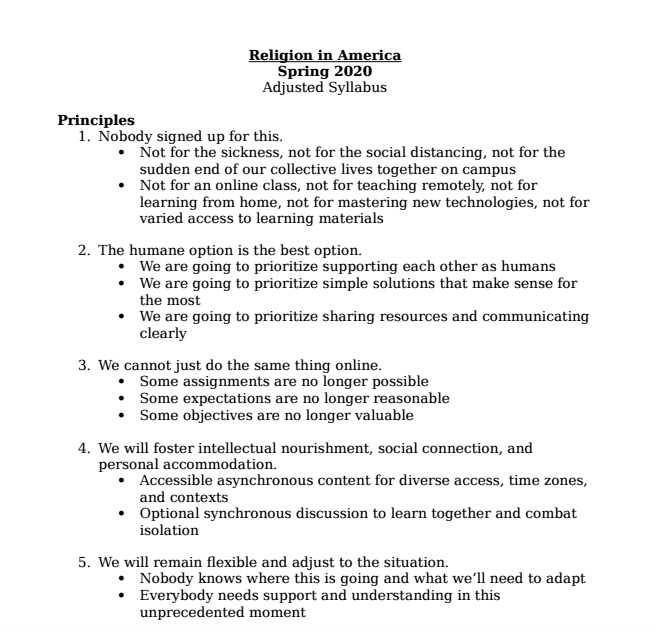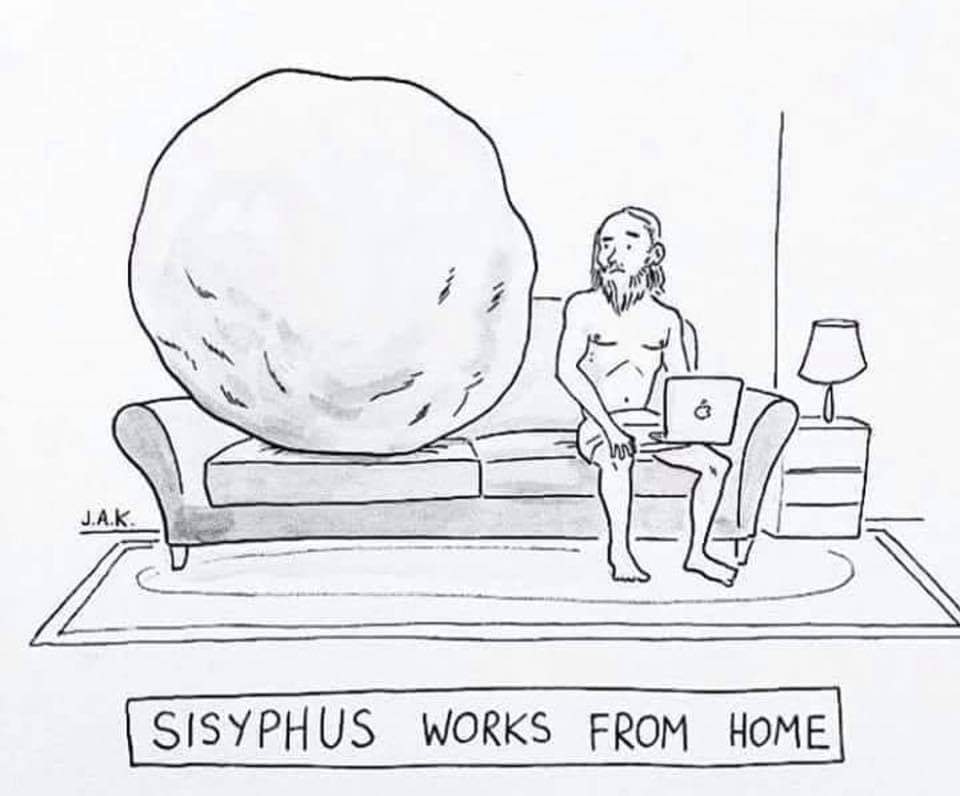Dear Physics Community,
I have not opined about how I think the pandemic will play out. From my advising for the government, I hear quite a bit from experts and some who think they are experts, none of what they say is consistent, even the classified ones. This is a time to go day-by-day: what can I do to make things better for me and those around me now, in the next hour, and the next day. Longer than that, I just do not know. What is very unusual is the right now, we are all doing this and I find some solace in that. While we are physically separated, we are all, everyone in the world, going day-by-day, together. A unique moment.
Academic Continuity Meeting
Travel – The State Department issued a Global Level 4 Health Advisory yesterday advising against all international travel. The State Dept. has also limited visa processing, reported in the here.
Emergency grades – will go into effect with the resumption of classes on March 30. There has been push back from various quarters in both directions – return the ABC/DF/I or making PE/NE/IE optional based on student or faculty preference. Careful consideration of many factors already went into the decision to have PE,NE, IE grading, and the Cahir of the Faculty will not reconsider it.
Graduate housing – guidance out here. The situation evolved yesterday through the day in two ways. First, some numbers:
- MIT residential graduate population is 6,400 students
- 4,000 live off-campus, 2,400 in Cambridge, 1,600 elsewhere
- Of the remaining 2,350 living on campus, 530 have left
- Of the 1,820 remaining, 550 are US citizens, the rest are international. International students cannot leave because of travel bans.
I know the numbers do not add up – it is okay.
Through the day yesterday, two things happened that caused concern for graduate student housing:
- Research on the coronavirus indicates it lasts much longer on surfaces and remains airborne longer than thought. Both of these findings increase the likelihood of infection in shared living situations.
- The City of Cambridge said MIT could help the city by being prepared to support the 3,000-4,000 members of the MIT community living in Cambridge.
These two developments made the Administration strongly “encourage” any graduate student who can leave, to do so. They offer various incentives that outlined the guidance. My reading of the rules in the guidance makes me advise you to get out if you can – life in MIT graduate housing will be tough.
PPE – Personal Protective Equipment (PPE) is essential for maintaining the health of those treating infected patients. MIT is collecting PPE from labs around MIT for use in local hospitals and I am in trying to find out if PPE that can be obtained makes sense for those in dorms. I am helping with a large group at MIT working to manufacture masks, face guards and ventilators for local use.
Staff and faculty – we are learning to work from home and MIT is producing advice on how to make this possible, especially with small children around, see here.
Campus space – the campus space reduction plan will circulate tonight, I hope. Limited access will go into effect Sunday. PIs: if you have critical access needs, this about who will be using the access. MIT police will need to know they belong where they are.
Physics Department
Graduate Oral exams – we will have a policy out early next week that will be consistent across the divisions. We are also working on PE/NE/IE grading guidance for graduate courses.
Student focussed talks – Anna Frebel is organizing a weekly department-wide zoom style talk series for grad students and postdocs (and really anyone who wants to listen).
Anyone can sign up to speak! Consider presenting, if you
- Were you scheduled to give a science talk at a conference this spring but it was canceled
- Have some new and exciting science to share
- Have something else interesting to share, or a topic to discuss (can be non-science!)
- Sign up here: https://docs.google.com/document/d/1lvDdzVSPpPK1FoKG36QgWCFu3lwnpQmOoQSkn-xBXlc/edit
- We need two people per week (plus two backups), for <30 min each.Please consider a non-specialist audience, as this is a department-wide effort! So you may need to add or take out a slide to make it widely accessible!
Thank you Anna!
Community – as we settle into this new life, we will have to find ways of building community. Carol’s post is a good start for this and I would like to build on it. In the coming week, I am going to work on how to make virtual informal gatherings with staff, students and faculty work. If you have any ideas, please let me know.
I had eDrinks with people twice today. Being 60 years old, I only learned about this last week from Carol’s post. Both were great and made me realize how desperate I was for society.
Peter
P.S. I am posting these messages in my blog roll here and I have been accumulating useful links that have gone by here. In particular, I am trying to keep a list of MIT policy communications.
Thanks to Physics Council, Cathy Modica, Vicky Metternich and Christina Andujar for input and comments on these messages.


